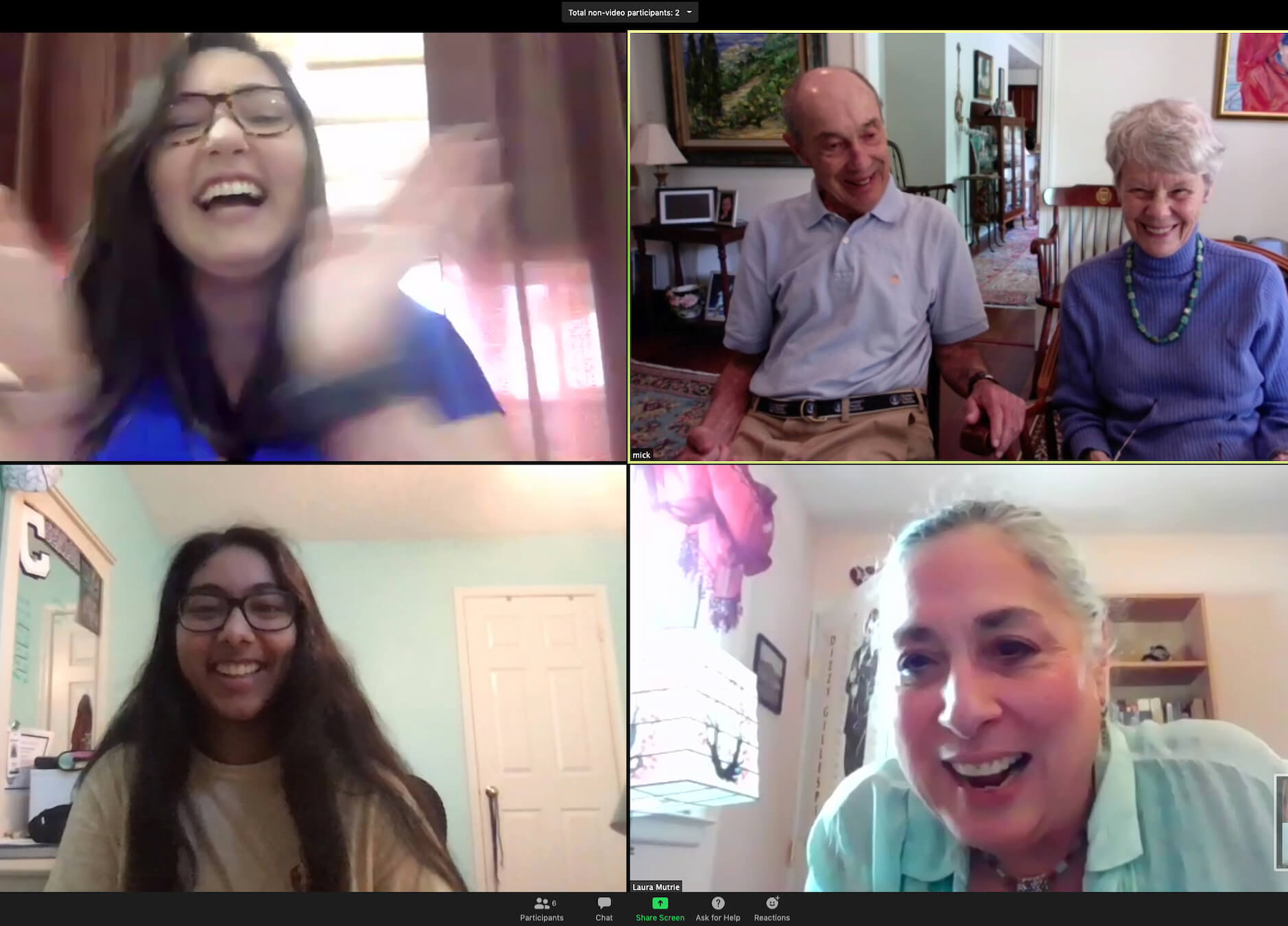
Students collaborate to write legacy books for clients with dementia
April 20, 2021

April 20, 2021

She participated in the Quinnipiac’s Center for Interprofessional Healthcare Education’s Legacy Program, which affords student volunteers in the schools of health sciences, medicine and nursing, as well as social work majors, the opportunity to collaborate and learn from each other as they gain insights from clients with dementia and present them with a hardcover book at the end.
Daghestani, an occupational therapy major, looked forward to working with Sadia Ali, who was in the second year of the entry-level BS/MHS in physician assistant program in Spring 2020. Daghestani said she initially was a bit worried about what to expect when interviewing Nancy, a retiree diagnosed with Alzheimer’s and living in a life care retirement community with her husband. Instead of in-person interviews, as had been the norm for program volunteers before the COVID-19 pandemic, their chats would take place via Zoom meetings.
To Daghestani’s delight, the five interviews she and Ali had with Nancy were like chatting with an old friend.
“She was 100 percent verbal and able to answer our questions,” she said.
Daghestani compared dementia to a full bookshelf.
“If I push the shelf over, the books up top may fall out because they represent our short term memory while the books at the bottom represent childhood memories deeply ingrained in us; we are unlikely to forget those as quickly.”
During the program, students participate in a two-hour training session, read evidence-based literature, and practice interview strategies. Over the course of5 weeks, each student team interviews their assigned client. At the end of the process, each team creates a Shutterfly book of photos, quotes and stories that the individual shared, capturing the special moments of the person’s life.
Nancy’s book cover featured a photo of her and husband, Mike, taken on a milestone wedding anniversary. It began with Nancy’s formative years and childhood memories and led up to her wedding, raising their family of four boys, parenting quotes, and favorite vacations complete with photos. Nancy also talked about her job as an occupational therapist in several neonatal intensive care units in Connecticut.
On sharing day,Nancy’s smile grew wider as she turned the pages. She looked up and exclaimed, “I can’t believe you got all this. I will cherish it.”
The exercise taught Daghestani to be an active listener. “It was an honor to listen to her and focus on her words, stories and feelings. I was able to picture the stories she told.”
Norene Carlson, a clinical assistant professor of occupational therapy and program facilitator, said one important thing students take away from the experience is that each dementia patient is different. “They are people first, with different lives, different things they love doing, different relationships.”
“Nancy said dementia can be such a bad word, and this project proves that dementia is not just a disease —there is an actual life and a person there,” said Daghestani.
Get the latest news and events sent right to your email by subscribing to Quinnipiac Today.
Subscribe